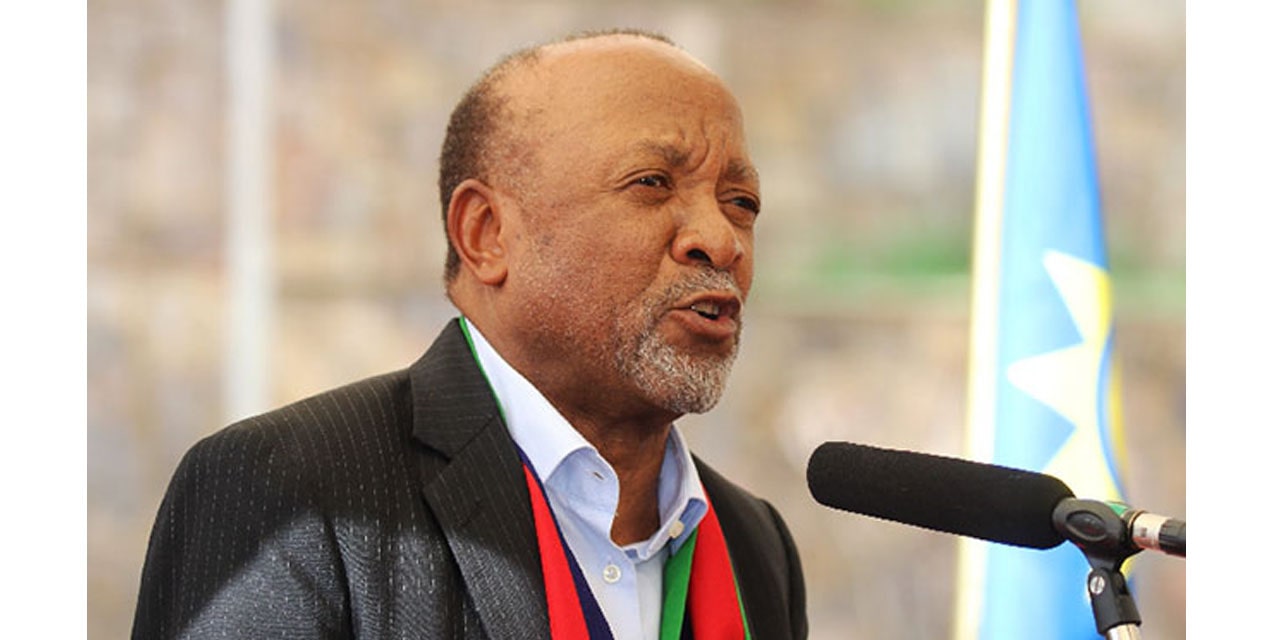Niël Terblanché
The success of the African Continental Free Trade Area (AfCFTA) is highly dependent on strategic partnerships with countries and governments from around the world.
The Vice President of Namibia, Dr Nangolo Mbumba addressed delegates to the Russia Africa Summit and said the African continent has set itself ambitious goals and flagship projects to propel the continental development, as enshrined in Agenda 2063.
“One of those flagship projects is the AfCFTA which was launched in 2021. We encourage the Government of the Russian Federation to provide the necessary support to the African Union Member States as we implement this continental blueprint,” he said.
Mbumba said the summit presents a platform to reflect on the progress made since the inaugural Summit held in 2019, where various areas of cooperation were identified.
“The onus is now on us to take stock of the progress made so far and forge ways on the new areas of cooperation,” he said.
He said the current summit provides the opportunity to reflect on matters of Peace, Security and Development, which are critical to the promotion of international peace and security.
He said that Namibia has been actively participating in peace and security efforts, at both regional and international levels, particularly as Chair of the SADC Organ on Politics, Defence and Security Cooperation and member of the African Union Peace and Security Council, respectively. He added that in the SADC region efforts are being made to find the lasting solution to the affected countries of Mozambique and the DRC.
“Namibia as a child of international solidarity is guided by the very same principles of solidarity and self-determination of nations. Therefore, we extend our solidarity to the peoples of Palestine and Western Sahara in their fight for self-determination,” he said.
According to Mbumba, energy resources are critical in propelling economic growth and development. He added that there is an urgent need to ensure access to clean and affordable energy.
“In this context, Namibia is embarking on Green Hydrogen in order to become a key player in renewable energy in Africa and the world. However, in order to succeed, our country will require technical assistance and cooperation from international partners,” the Vice President said.
He added that agriculture is one of Namibia’s key priorities.
“Towards this end, our country has developed policies geared towards the improvement of local production in the agricultural sector to ensure food security.
Namibia is looking forward to working with our partners, especially in areas of capacity building, technology transfer to improve agricultural production and agro-processing,” he said.
He said in regard to livestock and livestock products, negotiations are ongoing between Namibia and Russia on meat products based on reciprocity and mutual benefit.
“Other sectors where our two countries could cooperate include investments in all sectors, such as health, education and services. We look forward to a strengthened bilateral cooperation on trade and investments between our two countries,” he said.
He said that Namibia has been following the Russian Special Operation in Ukraine and its humanitarian impact on economic development globally and on the African continent.
“Namibia supports efforts being made to end the conflict. Equally, on the issue of reform of the multilateral systems, Namibia strongly believes that the international financial system needs to be reformed to provide equal benefits to both developed and developing countries,” he stated.
Mbumba told delegates that Namibia continues to champion the African Common Position on the reforms of the United Nations Security Council as espoused in the Ezulwini Consensus and the Sirte Declaration, to address historical injustice done to Africa, and for the Council to reflect equitable geographical representation, in order to gain legitimacy of its action and appropriately respond to present geographical reality.




